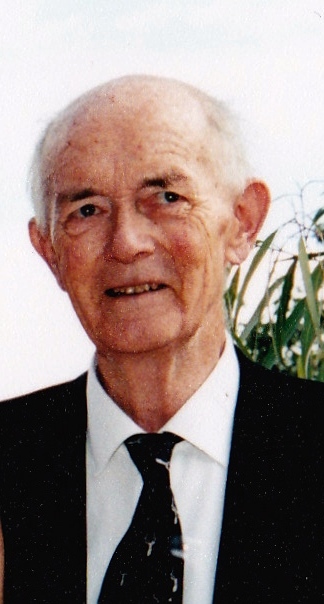 Hydrogeologist who worked chiefly in East Africa and Western Australia
Hydrogeologist who worked chiefly in East Africa and Western Australia
Trevor Terence Bestow, who died 19 March 2013 aged 87, made a considerable contribution to practical hydrogeology, both in East Africa and Western Australia, during a long and eventful life.
He was born 3 October 1925 in the Canary Islands. At the age of four he survived the shipwreck of the Highland Pride when it foundered after striking rocks off the coast of Spain. He attended Cambridge University (1943) to study aerodynamics, mathematics, physics and meteorology.
Fortunately for the science of hydrogeology, this was a false start to his university education as studies were interrupted by being called up into the RAF (1944), travelling to Canada for aircrew training as a navigator in February 1945. The war ended before these skills could be put into practice, and he was demobilised in 1947.
At that time there were no vacancies at Cambridge, so Trevor entered Glasgow University to read Geology, Chemistry and Natural Philosophy (aka Physics), graduating with First Class Honours in 1951. The choice of Geology was decided by a previous mild interest in the subject, coupled with a desire to work overseas awakened by his time in Canada.
At the end of 1951 Trevor went out to Kenya as a geologist with the British Colonial Service, in the Hydraulic Branch of the Public Works Department. In this post he selected water-bore sites for towns, settlers' farms, National Parks and mission stations, and sourced reliable water-supplies for nomadic tribes, the Masai in particular, for whom he had a great regard. Following the State of Emergency declared in response to the Mau Mau uprising (1952), Trevor was seconded to the Kenya Police until 1954 when he resumed geological work.
Trevor's duties also took him to Uganda, Sudan, Ethiopia and Tanzania. He also had an arrangement with the BBC, supplying them with 16mm film of wildlife and anthropology taken on his journeys throughout the region.
Trevor was appointed Senior Geologist in charge of the groundwater section in 1962, remaining in that position until his departure from Kenya in 1965 when he decided that Australia offered a better future for his family. Trevor joined the Geological Survey of Western Australia, as Senior (later Supervising) Hydrogeologist under Chief Hydrogeologist Eugene O'Driscoll. In this role, Trevor was in the forefront of studies of regional groundwater resources, landfill leachates, the effects of bauxite mining and salinisation of farms in the wheatbelt. As far back as 1982 he reported on the geothermal energy potential of Western Australia. He introduced innovative drilling and logging practices in coordination with the Mines Department Drilling Section and helped to establish dating of groundwater by measurement of tritium and carbon-14.
In 1966 the family settled at Roleystone, in the hills behind Perth, establishing orchards, growing
hydroponic vegetables and raising chickens.
Trevor passed away peacefully surrounded by his family. He is survived by Pat, his wife of 54 years, four children: Alistair, Clare, Sue and Ian, and nine grandchildren.
John Barnett